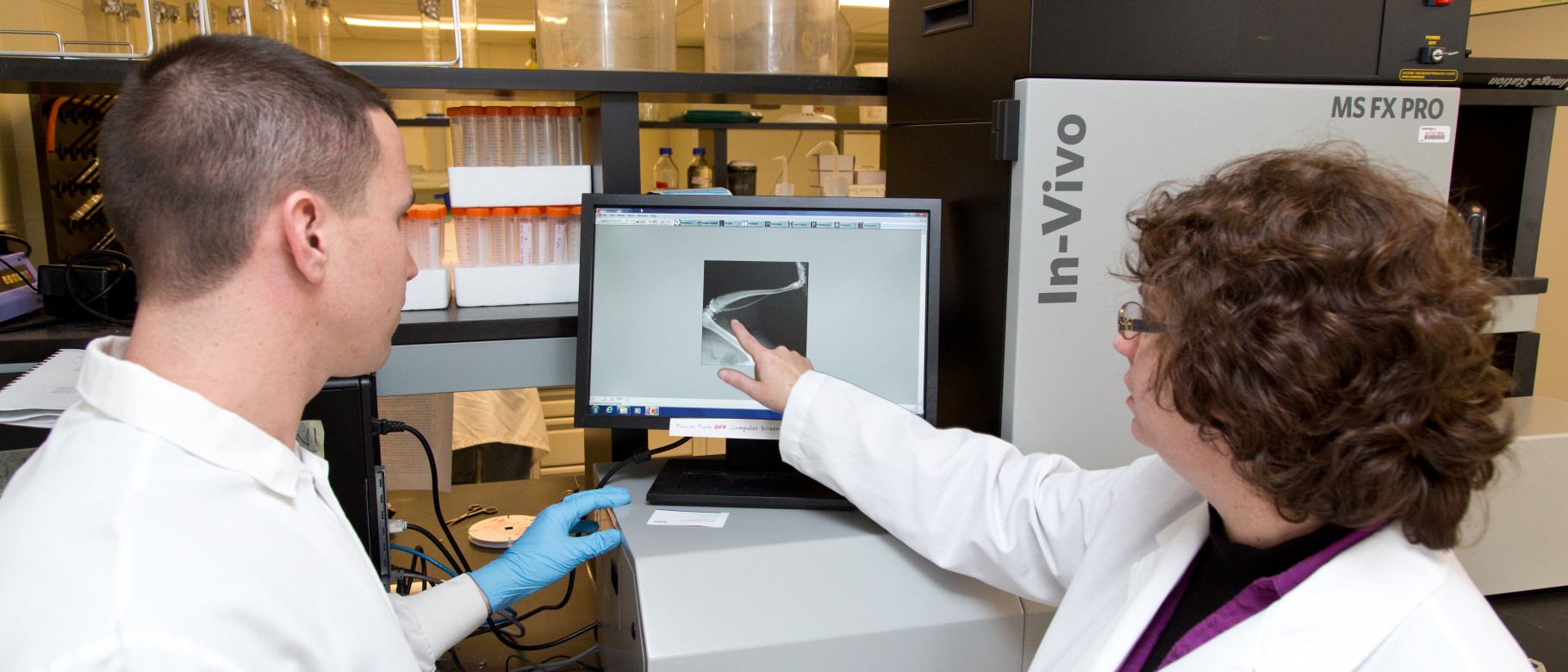Research from King laboratory at UNE shows the benefits of exercise for osteoarthritis

Tamara King, Ph.D., associate professor in the College of Osteopathic Medicine at the University of New England (UNE COM) published an original research paper that shows that exercise can be a beneficial treatment for knee osteoarthritis.
The study, published in the official journal of the American College of Rheumatology, Arthritis and Rheumatology, demonstrates that 4 weeks or more of daily, 30-minute intervals of treadmill exercise across 4 days a week induces pain relief in a rat model of osteoarthritis.
The exercise-induced pain relief was demonstrated to occur through activation of the pain inhibitory pathways. These observations suggest that exercise can recruit the body’s natural pain alleviating mechanisms to counter osteoarthritis pain that is resistant to currently available medications such as the commonly prescribed non-steroidal anti-inflammatory drug, diclofenac. In addition, the studies demonstrate that treadmill exercise protects the bone from bone loss associated with development of osteoarthritis, perhaps stabilizing the joint. Together, these data indicate that exercise may delay the need for surgical joint replacement in patients suffering from painful osteoarthritis that is resistant to currently used medications.
This research was performed by UNE students working in King’s laboratory. The lead author, Joshua Allen, was the lead student investigator for the project when he worked in King’s laboratory as an undergraduate student in the Department of Medical Biology in the College of Arts and Sciences (CAS). Allen is now a second year student in the College of Osteopathic Medicine (COM). Ian Imbert ’12, M.P.H., obtained a Master of Public Health degree while working on this project in King’s laboratory and now works for UNE Vice President of Clinical Affairs Dora Anne Mills, M.D., FAAP, as a clinical interprofessional education (IPE) project coordinator. Joshua Havelin ‘11 is currently pursuing his Ph.D. and works in King’s laboratory. This work was done in collaboration with Glenn Stevenson, Ph.D., associate professor of neuroscience.
This research was performed as a part of a COBRE-funded project in King’s laboratory.
To learn more about the University of New England’s College of Osteopathic Medicine, visit www.une.edu/com
To learn more about the University of New England’s College of Arts and Sciences, visit www.une.edu/cas
To apply, visit www.une.edu/admissions